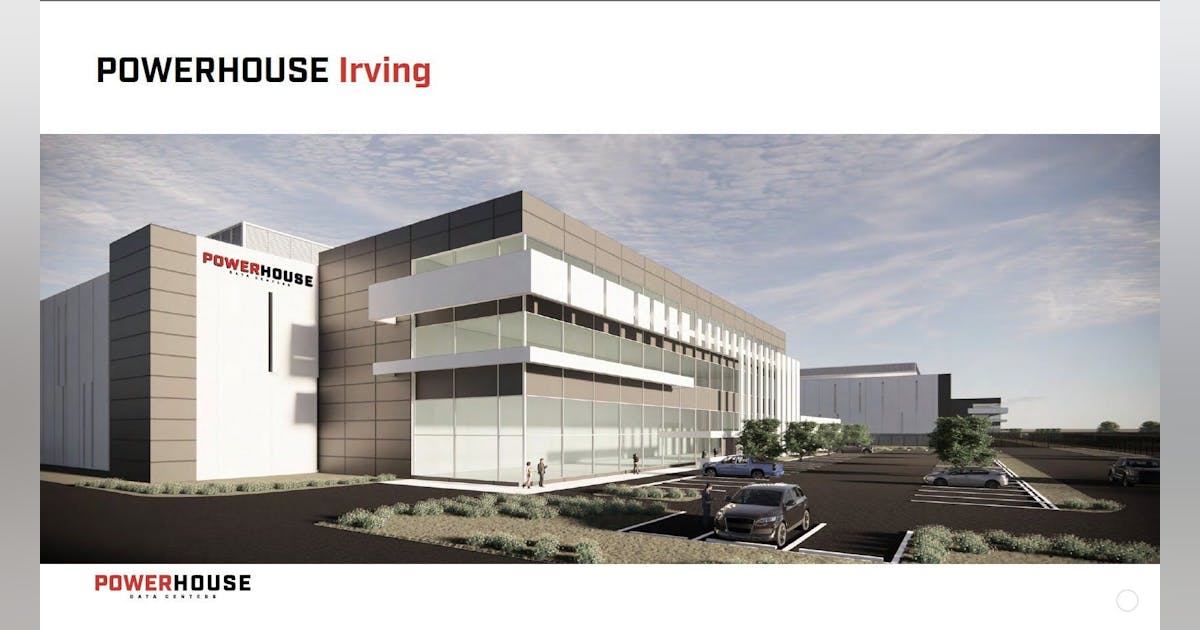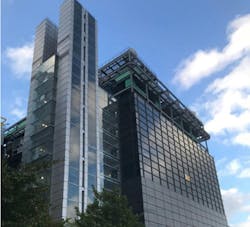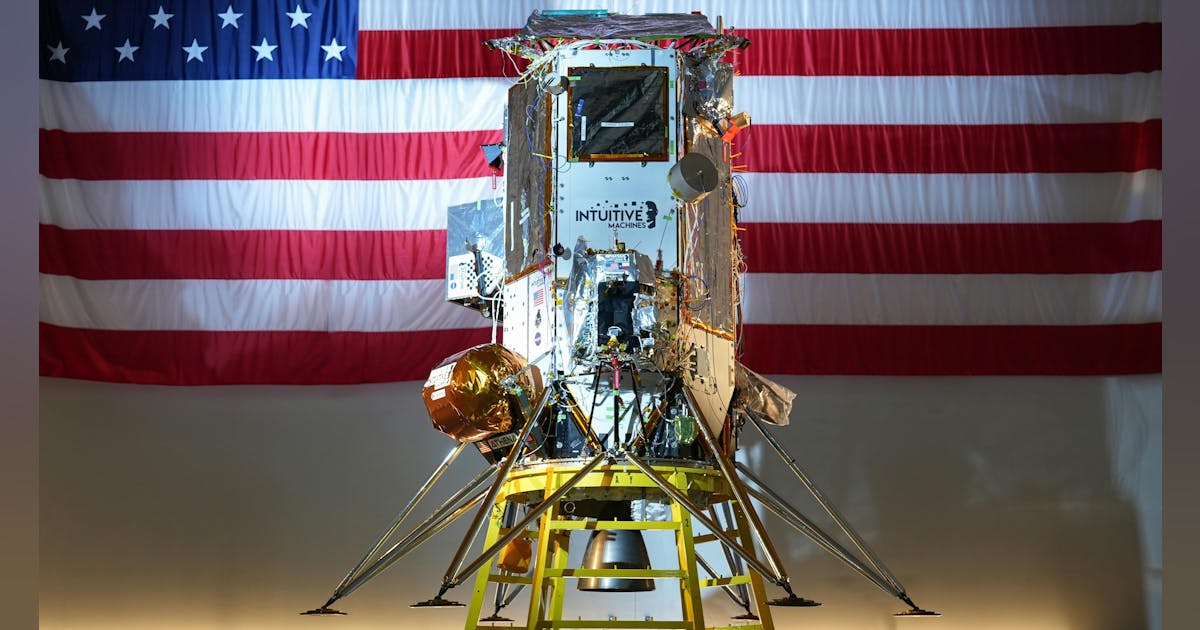
PowerHouse Data Centers, a leading developer and builder of next-generation hyperscale data centers and a division of American Real Estate Partners (AREP), is making significant strides in expanding its footprint across North America, initiating several key projects and partnerships as 2025 begins.
The new developments underscore the company’s commitment to advancing digital infrastructure to meet the growing demands of hyperscale and AI-driven applications. Let’s take a closer look at some of PowerHouse Data Centers’ most recent announcements.
Quantum Connect: Bridging the AI Infrastructure Gap in Ashburn
On January 17, PowerHouse Data Centers announced a collaboration with Quantum Connect to develop Ashburn’s first fiber hub specifically designed for AI and high-density workloads. This facility is set to provide 20 MW of critical power, with initial availability slated for late 2026.
Strategically located in Northern Virginia’s Data Center Alley, Quantum Connect aims to offer scalable, high-density colocation solutions, featuring rack densities of up to 30kW to support modern workloads such as AI inference, edge caching, and regional compute integration.
Quantum Connect said it currently has 1-3 MW private suites available for businesses seeking high-performance infrastructure that bridges the gap between retail colocation and hyperscale facilities.
“Quantum Connect redefines what Ashburn’s data center market can deliver for businesses caught in the middle—those too large for retail colocation yet underserved by hyperscale environments,” said Matt Monaco, Senior Vice President at PowerHouse Data Centers. “We’re providing high-performance solutions for tenants with demanding needs but without hyperscale budgets.”
Anchored by 130 miles of private conduit and 2,500 fiber pathways, Quantum Connect’s infrastructure offers tenants direct, short-hop connections to adjacent facilities and carrier networks.
With 14 campus entrances and secure, concrete-encased duct banks, the partners said the new facility minimizes downtime risks and reduces operational costs by eliminating the need for new optics or extended fiber runs.
“The Northern Virginia market has a shortage of edge, inference, and network suites for the growing number of networks and providers,” said Dan Golding, Chief Technology Officer of ASG. Golding, who is partnering with PowerHouse to handle leasing for Quantum Connect added, “Quantum Connect fills a huge need in the market, which will remove a significant hurdle to expansion, especially in the new inference marketplace.”
Quantum Connect says it integrates sustainability-focused practices to align with tenant ESG priorities. Energy-efficient systems and operational strategies are part of the new facility’s DNA, the company adds, ensuring tenants can meet their goals without compromising on performance.
Pioneering Kentucky’s First Hyperscale Data Center Campus
In a joint venture announced on January 16, PowerHouse Data Centers is partnering with Poe Companies to develop a 400 MW data center campus in Louisville, Kentucky. The initial 130 MW is expected to be available by October 2026.
This project marks Kentucky’s inaugural hyperscale data center, aiming to set new standards for infrastructure and reliability to cater to the increasing demands of cloud and AI computing.
“Poe Companies is honored to partner with PowerHouse Data Centers, a truly world-class data center developer, on this transformative project,” said Steve Poe, CEO of Poe Companies. “Our combined expertise and shared vision for innovation continues to position Louisville as a key hub for cutting-edge digital infrastructure.”
The collaboration has secured an initial power capacity of 335 MW, with plans for near-term expansion up to 402 MW, supported by a new switch station to be built by Louisville Gas and Electric.
“Louisville offers everything hyperscale users need – immediate and reliable power at very attractive rates, water, connectivity and a business environment that encourages more hyperscale growth in the region,” said Doug Fleit, Co-Founder and CEO of PowerHouse.
Fleit added, “The experience of working with Louisville Gas and Electric (LG&E), the utility serving the site, has been a model for other utilities in the country to follow as well as a testament to Poe Companies’ relationships in the community and the market.”
The campus will also benefit from access to the Louisville Water Company’s strong infrastructure system and excess capacity with its water treatment system and the Ohio River, with an average of 75 billion gallons flowing by Louisville daily, ensuring effective cooling and operational efficiency for high-density computing needs.
With all essential zoning in place, the site will begin construction in 2025, and the first building is scheduled to be operational by Q4 2026.
“We are proud to serve Kentucky’s first hyperscale data center,” said John R. Crockett, president of LG&E and KU and chief business development officer for PPL Corporation. “This groundbreaking project will be historic for Kentucky and a continuation of new economic announcements happening throughout the Commonwealth.”
State Senate President Robert Stivers, R-Manchester, agreed. “This project is a game-changer, driving long-term economic growth in our major metropolitan center and boosting Kentucky as a regional business driver.”
“Attracting hyperscale operators to any location requires a different set of tools than most other industries,” added Jeff Noel, Kentucky’s Secretary for Economic Development. “This announcement is a critical milestone from great leadership to assure all elements needed to begin successful operations are available.”
This announcement marked the seventh new data center development project for PowerHouse in 12 months. The Louisville project adds to 87 data center buildings planned, underway or already delivered by the company.
“This new data center will create thousands of good-paying jobs here in Louisville,” said Louisville Mayor Craig Greenberg. “As the need for data centers grows, Louisville is perfectly positioned to meet the demands of the tech sector.”
Advancing Hyperscale Infrastructure in Charlotte, North Carolina
On January 14, PowerHouse Data Centers revealed significant progress in developing a new data center campus on a 122-acre site along University City Boulevard in Charlotte, North Carolina.
The campus is designed to accommodate the demands of advanced hyperscale and AI-driven applications, featuring advanced cooling systems, flexible powered shells, and infrastructure tailored for AI-driven workloads. Currently in the permitting phase, the project underscores PowerHouse’s commitment to delivering state-of-the-art solutions that meet the growing demand for data center space tailored for advanced computing in the Southeast United States.
According to the company, what sets the PowerHouse Charlotte campus apart is its total responsiveness to the demands of today’s most advanced hyperscale and AI-driven applications. The modular powered shell design employed offers maximum flexibility, enabling hyperscale tenants to configure their spaces with precision while accelerating deployment timelines. This forward-thinking approach positions the campus as a leader in delivering cutting-edge data center solutions.
“The PowerHouse Charlotte campus is a game-changer,” remarked PowerHouse Co-Founder and CEO Doug Fleit. “We’re redefining the data center landscape with a flexible design that, in a world where compute densities and architecture are in constant flux, lets hyperscale tenants tailor to their specific needs and vision. This project embodies our commitment to pushing boundaries and delivering next-gen facilities that stay ahead of market demands.”
The project will feature four buildings constructed across two phases, with building construction planned to commence in March 2026 and all buildings scheduled for completion in 2027. Phase 1 of the project is set to begin in Q1 2025, focusing on site preparation, including road construction and substation pad development.
Substation equipment has already been ordered to align with the timeline for power delivery from Duke Energy, ensuring the necessary infrastructure is in place to support the buildings. Substation construction is scheduled to commence in October 2025, with energization targeted for April 2027.
“Our campus is uniquely designed to set a new standard for next-generation deployments and hyperscale tenants,” explained Karen Petersburg, PowerHouse VP of Development and Construction, who is leading the Charlotte project.
Petersburg continued, “Unlike traditional designs, our adaptable powered shells are purpose-built to meet a wide range of needs, including the latest AI-specific configurations. We’ve prioritized innovative features like advanced cooling solutions, heavy-load-ready roofs to support cooling towers, and reinforced floors to handle the demands of AI-driven rack systems, ensuring our infrastructure is truly future-ready.”




















